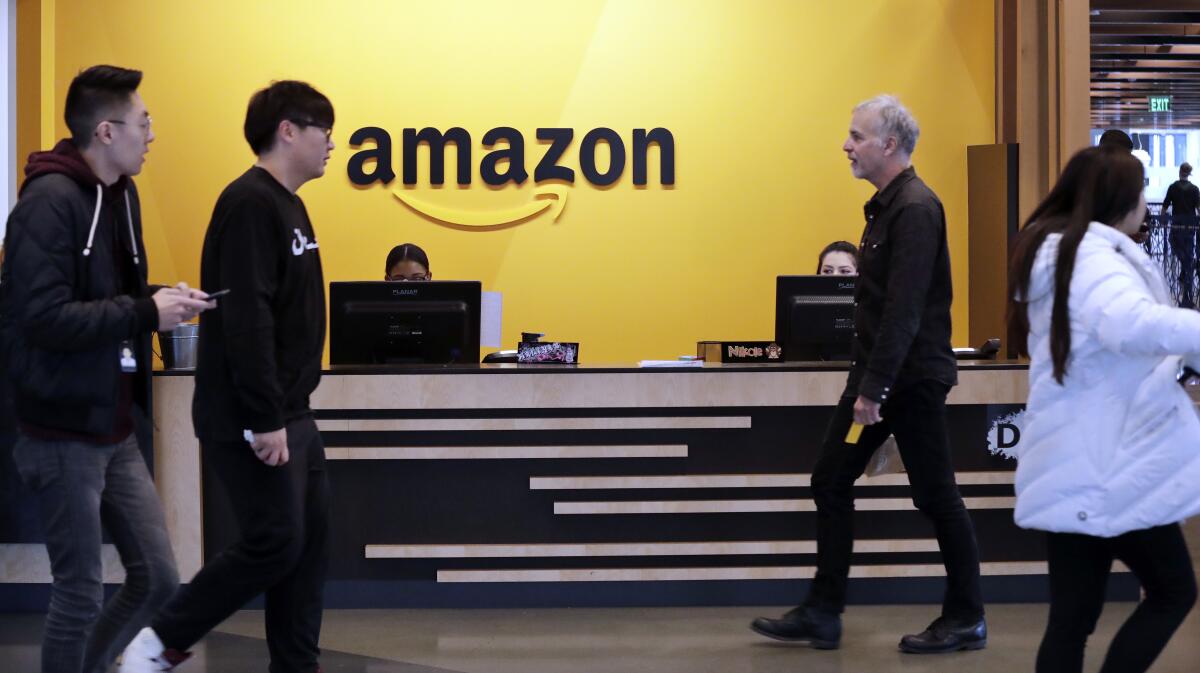Amazon enters chatbot wars with AI startup partnership

Amazon.comās cloud unit is expanding a partnership with artificial intelligence startup Hugging Face, which is developing a ChatGPT rival, the latest move as the biggest technology firms line up allies in an attention-getting market for generative AI systems.
Amazon Web Services will make Hugging Faceās products, which include a language generation tool that competes with the technology behind OpenAIās ChatGPT, available to cloud customers who want to use these tools as the building blocks of their own applications. Hugging Face will build the next version of that language model, called Bloom, on AWS, said Swami Sivasubramanian, vice president of database, analytics and machine learning at Amazonās cloud unit.
Hugging Face, which makes AI products and hosts those developed by other companies, is also working on open-source rivals to ChatGPT and will use AWS for that as well, Clement Delangue, the startupās chief executive, said in an interview. The two companies have a close relationship and already have 1,000 customers in common, Delangue said. Still, the cloud deal is not exclusive, giving Hugging Face the ability to work with other providers.
AWS already has more than 100,000 customers running AI applications in its cloud, Sivasubramanian said. These customers will now be able to access Hugging Face AI tools through Amazonās SageMaker program. Additionally, Hugging Faceās software developers can use Amazonās cloud computing power and its chips designed for artificial intelligence tasks. The companies didnāt disclose financial details of the partnership, but Amazon said it didnāt invest in the startup.
The partnership comes amid a flurry of agreements and investments that pair the largest cloud providers with companies working on generative AI. Last month, Microsoft struck a deal to invest in ChatGPT maker OpenAI thatās said to be valued at $10 billion, and is using the startupās technology for Bing search. Earlier this month, Alphabetās Google put nearly $400 million into OpenAI rival Anthropic, a person familiar with the matter said.
Cover letters are notoriously hard to write. These job seekers decided to outsource the task to ChatGPT, an AI chatbot, with impressive results.
At stake is the ability to sell cloud computing services to take advantage of a boom in interest in generative AI programs, which can create new text, photos and graphics. Because the programs sort through a large volume of existing content in order to generate something new, they require considerable computing power delivered via the cloud and represent lucrative businesses to Amazon, Microsoft and Google.
AWS already has partnerships with Stability AI, the maker of image generation tool Stable Diffusion ā a competitor to OpenAIās Dall-E ā and the Israeli AI company AI21 Labs, which makes another rival to OpenAIās GPT language model called Jurassic.
āIt should not be about just one model that is going to rule the world,ā said Sivasubramanian of AWS. āYou want developers to have a broad range.ā
Hugging Faceās Bloom was trained on a French publicly available supercomputer called Jean Zay. The company sees using AWS for the coming version as a way to give Hugging Face another option with a partner it has a good relationship with, Delangue said.
āThis is an important, meaningful alliance,ā he said. āIt aligns with our vision of democratizing machine learning, making it easier for all companies to build machine learning.ā
Alphabetās Google has invested almost $400 million in artificial intelligence startup Anthropic, which is testing a rival to OpenAIās ChatGPT, according to a person familiar with the deal.
Hugging Face last year raised $100 million from investors including Lux Capital, Sequoia Capital and Coatue Management, as well as basketball star Kevin Durant. The companyās repository of AI models serves as kind of a GitHub of machine-learning tools where developers can share work and collaborate.
More to Read
Inside the business of entertainment
The Wide Shot brings you news, analysis and insights on everything from streaming wars to production ā and what it all means for the future.
You may occasionally receive promotional content from the Los Angeles Times.












